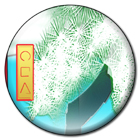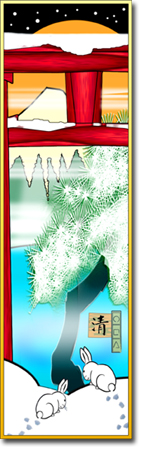On The Way: The Daily Zen Journal
The Basis of Awareness
Foyan (1067-1120)

Expand enlightenment, and the mind is always calm; go along with things, and consciousness runs at a gallop. I only wish to be rich in enlightenment though personally poor, generous with virtue though emotionally aloof.
Here, I am thus every day, thus all the time. But tell me, what is “thus?” Try to express it outside of discriminatory consciousness, intellectual assessments, and verbal formulations.
This reality is not susceptible to your intellectual understanding. Now those who think, attend, and reflect all have some intellectual understanding; but then when they turn back to examine their own eyes and think of the mind that thinks, at this point why do people unknowingly say, “It has never been blue, yellow, red, or white; it has no appearance, nor form”? I tell you, this is what I call talk; it is not your original mind.
How can you think of your original mind? How can you see your own eye? When you are looking inward, furthermore, there is no seeing subject. Some people swallow this in one gulp, so their eye of insight opens wide, and they immediately arrive at their homeland.
How can people nowadays reach the point where there is no seeing and no hearing? Everything is always there; you see people, houses, and all sorts of forms, like boiling water bubbling.
When you were infants, you also heard sounds and saw forms, but you didn’t know how to discriminate. Once you came to the age of reason, then you listened to discriminatory thinking, and from that time on have suffered a split between the primal and the temporal.
At this point, it is inevitably hard for people to restore natural order even if they want to. Those who attain enlightenment do not see walking when they walk, and do not see sitting when they sit.

That is why the Buddha said,
“The eyes seeing forms is equivalent to blindness; the ears hearing sounds is equivalent to deafness”
How can we say we are as if blind and deaf? When we hear sound, there is no sound to be heard; when we see form, there is no form to be seen. What we see and hear is all equivalent to an echo. It is like seeing all sorts of things in a dream—is there all that when you wake up?
If you say yes, yet there’s only the blanket and pillow on the bed; if you say no, yet all those things are clearly registered in your mind, and you can tell they were there. The same is true of what you see and hear now in broad daylight.
So it is said, what can be seen by the eye or heard by the ear can be studied in the scriptures and treatises; but what about the basis of awareness itself—how do you study that?

Just Being There
Where is Shakyamuni, the Buddha?
What? What?
Where is Bodhidharma, Founder of Zen?
Just there.
How do you explain the logic of just being there? It’s unavoidably hard to clarify. If you can clarify this, you will finally know that true reality is always there
Many Zen specialists say, “The mention itself is It.” Then what about when you’re dying, or too sick to speak? It is necessary to penetrate this experientially before you’ll get it

Have you not read how a seeker asked Deshan, “Where have the ancient sages gone?” Deshan said, “What? What?” Does that mean that “what” is itself the sages?
You people either interpret literally or else fall into conventional echoes of what is said. If you don’t fall into echo-like expressions, then you fall into wordlessness and speechlessness.
This reality you actually cannot figure out by conceptual interpretations; if you keep any of that on your mind it turns into an inclination, alienating you from your self
Even if you try to attain harmony by means of mystic devices and wondrous doctrines, you will certainly be unable to do so. If you do not think at all though, that won’t work either. You must personally experience it before you will attain clear vision with no doubt.

Foyan (1067-1120)
Source – Instant Zen – Waking up in the Present, trans by Thomas Cleary





This theme is one we return to repeatedly, that being the difference between thinking we understand versus having the direct experience. We need these reminders because it is all too easy to fall into the intellectual trap of equating “understanding” enlightenment with living enlightenment.
Reading the Zen stories of awakening or the exchanges between masters and students can be inspiring, but they also generate a comparing and weighing mind. Even though words cannot express the ultimate, it is easy to see how “that’s not what I’ve experienced. I must be far from it!” Or, “Oh, I get it; that is just how I experience the world.” The dichotomy the comparing mind brings up is almost automatic. In each of these mind states at the center there is the sense of an “I.”
How to break through? How to balance just enough sense of ego with the experience of “just being there.” So simple a phrase and there are many such phrases or single words that point to what Is. This is a path we walk alone; this is a place where waking up is our challenge. And just because someone else woke up with a word or sound does not mean we can take that on for ourselves. There is a key for us which we have to find ourselves.
Steadily here,
Elana, Scribe for Daily Zen